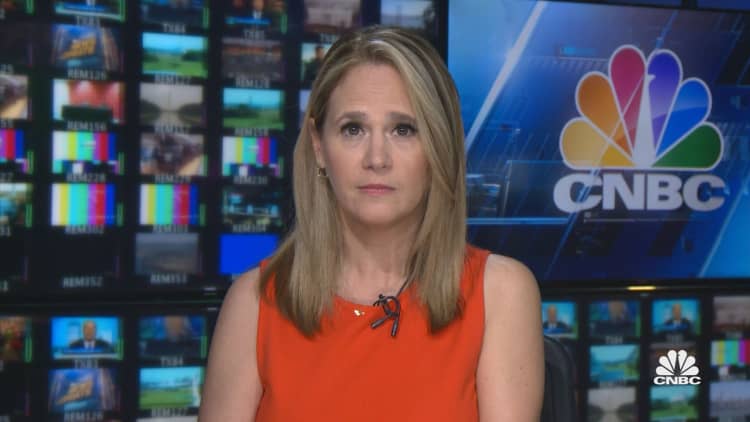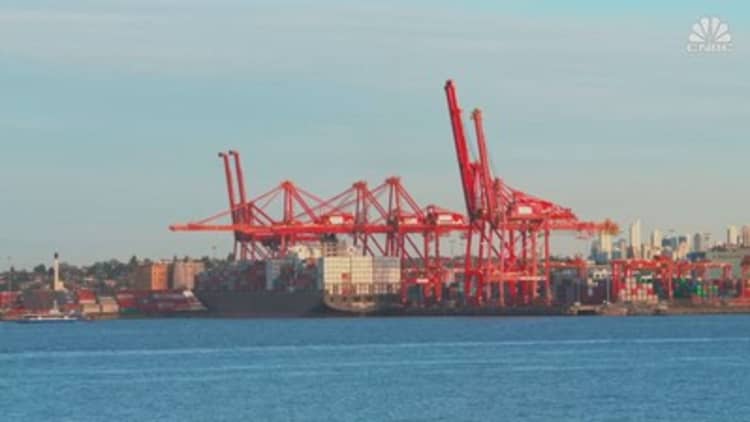

After a recent landslide vote of union members, the ILWU Canada has served notice it plans to strike at the country’s West Coast ports starting on July 1. The Canadian Labor Code requires three days’ notice to announce a strike. The notice came on Wednesday.
Over 99% of ILWU Canada union workers critical for West Coast port operations, including in Vancouver and Prince Rupert, voted earlier this month in favor of supporting a strike if a labor deal was not reached. The vote, which took place on June 9-June 10, occurred during a 21-day cooling-off period between the British Columbia Maritime Employers Association, which represents port ownership, and ILWU Canada. Two mediators appointed by the Canadian government oversaw discussions that ran through the end of May.
ILWU Canada said in a statement on Wednesday that its goal is to protect jobs and claims the British Columbia Maritime Employers Association is demanding major concessions.
“Their only objective is to take away rights and conditions from longshore workers after having gorged themselves on record profits during the pandemic,” stated Rob Ashton, president of the ILWU Canada.
BCMEA countered in a statement that it has advanced multiple proposals and positions, “with the objective of making progress and achieving a fair deal at the table.”
Issues include port automation, union concerns about the loss of work through “contracting out,” and cost of living, specifically, inflation’s impact on workers’ income level.
Impact to U.S. economy and trade
The biggest port to be affected by this strike is the Port of Vancouver, the largest port in Canada. About 90% of the cargo that moves through the Port of Vancouver is Canadian trade, according to the Vancouver Fraser Port Authority. But there are potential impacts for U.S. trade. Approximately 15% of container trade moving through the Port of Vancouver is destined to or from the U.S., and approximately 2% of U.S. international laden imports arriving at West Coast ports each year move through the Port of Vancouver, according to the port authority.
Approximately two-thirds of containerized import volumes coming into the Port of Prince Rupert are destined for the U.S. market by rail, according to data from the port.
The Port of Vancouver and the Vancouver Centerm Terminal in Vancouver, British Columbia, Canada, on Thursday, March 23, 2023.
Bloomberg | Bloomberg | Getty Images
It is estimated that Canadian West Coast ports handle almost $225 billion worth of cargo a year, with items transported by rail including many consumer products, from apparel to electronics and home goods. The movement of grain vessels should not be impacted by the strike under the Canadian labor code.
Three Class 1 railways operate at these ports, CN, Canadian Pacific, and BNSF, a subsidiary of Berkshire Hathaway. CN and BNSF could not be immediately reached for comment.
In a CPKC customer advisory issued Wednesday, the railway said, “The work stoppage related to this notice could impact port operations in British Columbia. At this time, we do not anticipate any significant service interruptions to result from this work stoppage, and as such, CPKC has not initiated embargoes related to a potential service interruption but we are closely monitoring developments to evaluate any impact to shipments on CPKC’s network. We will provide updates as necessary.”
BCMEA’s statement said that it remains ready to re-engage with the labor union through the federal mediation process. “That includes voluntarily entering a mediation-arbitration process shaped by the parties that encourage continued dialogue and negotiations and only, if necessary, provides for a binding outcome via interest arbitration. So far, ILWU Canada has declined this binding mediation & arbitration proposal,” it said.
It is hoped that cruise vessels during the busy summer season will be serviced, but it is “unclear at this moment whether the ILWU will provide service to that segment of the industry,” the BCMEA said.
Another round of discussions is scheduled for Thursday.
Global supply chain has been returning to normal
The global supply chain has faced several new risks as peak shipping season that encompasses both back-to-school and holiday orders begins. The Panama Canal has been dealing with severe drought conditions, while the U.S. West Coast ports reached a tentative labor deal after weeks of tension between the U.S. ILWU and port management, but that deal will take months to ratify by rank and file union members.
“We are concerned about a potential strike and its impact at the Ports of Vancouver and Prince Rupert,” said Jon Gold, vice president of supply chain and customs policy at the National Retail Federation, in an email to CNBC. “Retailers have diversified their supply chains to include these critical ports in Canada. A strike would lead to delays and disruption as we enter the peak shipping season. We urge the parties to remain at the table and continue negotiations until a deal is in place.”
Overall, data shows that supply chain costs have come down significantly since the pandemic inflation shocks, and companies say that the supply chain has been returning closer to normal operating conditions despite the recent congestion on the West Coast due to ILWU and port management actions before the tentative deal was struck. During a CNBC interview on Wednesday, General Mills CEO Jeff Harmening described the supply chain as “getting healthier over the last three months” and he said the number of disruptions are similar to pre-pandemic levels.
But logistics managers tell CNBC that news of the Canadian port worker strike is a blow to operations. “We will pre-pull as many containers as possible before the weekend,” said Paul Brashier, vice president of drayage and intermodal at ITS Logistics. “We will then take those containers that were bound for rail and transload the products onto dry vans.”
Brashier said these Canadian ports are vital to Midwest manufacturers and the auto industry, as most transpacific freight enters at these points prior to interlining to rail and going to inland rail ramps in Chicago and other major markets.
The International Longshoremen’s Association, the largest union of maritime workers in North America, representing the workers at ports on the Atlantic and Gulf Coasts, Great Lakes, major U.S. rivers, Puerto Rico and Eastern Canada, said in a statement that no diverted cargo from striking ports would be accepted.
In an email to CNBC, the ILA reinforced the position of ILA president Harold Daggett, who cited the threat of automation, “contracting out” of work, and cost-of-living concerns, in his statement supporting ILWU Canada. “All stakeholders in our industry know very well President Daggett and the ILA are against automation, semi automation and new technology for the simple reason that workers lose their jobs. President Daggett does not believe that machines should replace workers, especially in America.”
The ILA has made the case that longshore workers consistently prove they outproduce automated equipment. Ports have produced research saying investments in automation are critical, while union research has made the opposite case focused on job losses.
The ILWU leadership for U.S. West Coast ports, the nation’s busiest, had no comment on the strike.

Be the first to comment